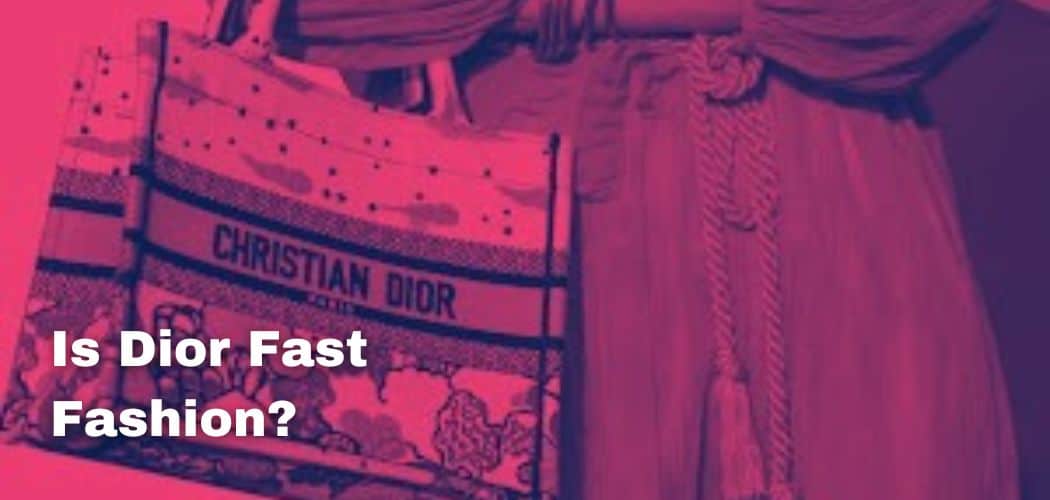Do you love wearing chic, trendy, and exquisite clothes? You definitely are a Dior fancier. The brand has influenced so many with its luxury couture apparel throughout the years.
However, with the rise of fast fashion, people are now more than ever into the latest yet cheap fashion. Today, style addicts often overlook quality for quantity.
This paradigm shift has forced many iconic fashion brands such as Zara and H&M to offer fast fashion.
But is Dior leaping over to quick turnaround fast fashion too? Or is it holding onto its foundations of manufacturing high-end and revolutionary fashion?
In this article, we’ll talk about whether Dior is fast fashion. Also, you’ll learn about the brand’s ethical and environmental impacts.
About Dior
Designer Christian Dior founded the French luxury fashion house Dior in 1946. Since its inception, the brand has been famous for its ladylike designs and high-quality craftsmanship.
Today, Dior is one of the largest fashion houses in the world, with over 200 boutiques across the globe. The brand specializes in high-end ready-to-wear, leather goods, fragrances, and other accessories.
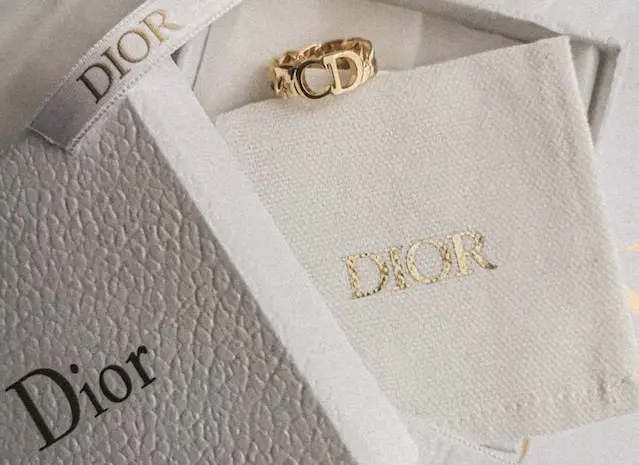
Dior remains at the forefront of fashion, with a talented team of designers working to create innovative and exciting collections each season.
In addition to garments, the brand offers a beauty division, with products that range from cosmetics to fragrances.
So, Whether you want a classic little black dress or something more cutting-edge, Dior has something to suit your style.
Is Dior Fast Fashion?
Is Dior considered fast fashion? The simple answer is; that Dior is not a fast-fashion store.
Fast fashion represents clothing designed to be quickly produced. Moreover, it typically has a lower price tag than traditional designer garments.
Dior is a luxury brand, so its prices are much higher than fast fashion brands. In addition, luxury brands typically release fewer collections per year and produce fewer pieces per collection.
This contrasts with fast fashion brands that release new collections multiple times per week. Moreover, fast fashion retailers produce large quantities of each style.
Finally, Dior uses higher quality materials and manufacturing techniques to produce long-lasting garments.
Although Dior may not be fast fashion, the company does have a history of being inspired by street style trends.
For instance, the company’s Fall 2018 collection was heavily influenced by the ’90s grunge.
Designers sent models down the runway in plaid skirts, ripped tights, and Doc Martens boots. All these items were once considered rebellious but are now mainstream staples.
While Dior may not be fast fashion, it’s clear that the company is closely attuned to manufacturing trendy items.
However, what is certain is that Dior remains one of the most iconic and prestigious names in fashion.
Is It Ethical?
Over the years, many voices have raised questions over Dior’s ethical practices.
Some have criticized Dior for using fur, leather, and exotic skins in its clothing and accessories.
Also, others have accused the company of environmental violations. They say that its wastewater discharge and pollution from its factories are a huge source of environmental pollution.
In addition, the brand’s reliance on child labor in its supply chain has also been heavily called into question.
However, the company has also taken steps to improve its ethical practices. For instance, it has banned the use of fur in its designs and released a sustainable cotton collection.
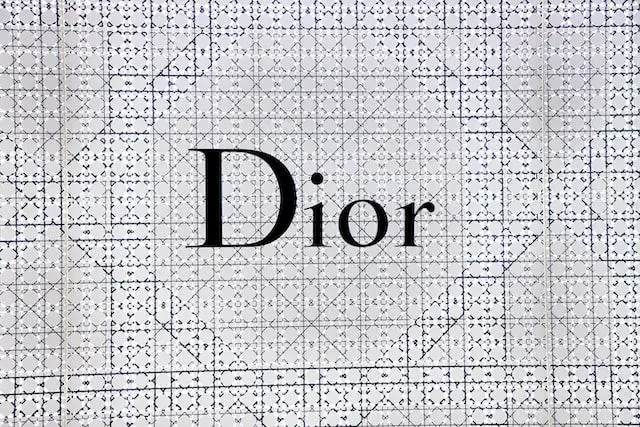
But the brand still has not taken meaningful action to eliminate chemical hazards properly. Also, it needs to put more effort into minimizing textile waste.
While Dior has taken some steps to address these concerns, there is still room for improvement.
Therefore, being a significant brand, Dior must continue working towards more ethical and sustainable practices.
Where Does Dior Get Its Clothes?
Although Dior produces some garments in-house, most of its clothes are sourced from different manufacturers. It works with hundreds of different suppliers, both large and small, all over the world.
These manufacturers are typically located in France and Italy. Here they have access to the most delicate fabrics and skilled artisans.
Sourcing clothing from various manufacturers allows the company to offer its customers a wide variety of clothing options. In addition, this helps the brand keep its costs down, which ultimately helps to keep its prices competitive.
While some designers prefer to work with a single supplier, Dior’s approach offers several advantages.
First, it helps ensure that the company always has access to the latest fashion trends. Second, it helps keep costs down by allowing Dior to take advantage of economies of scale.
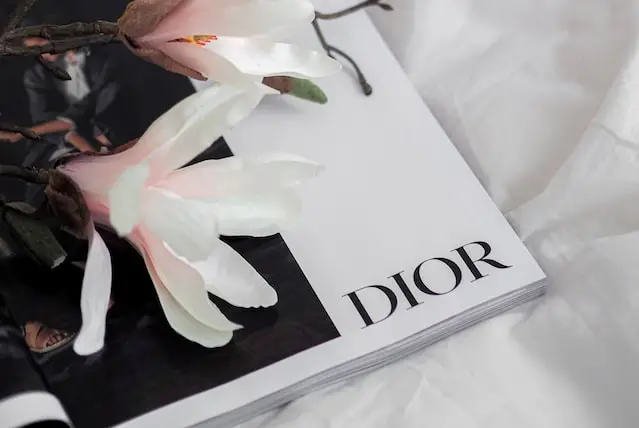
Finally, it allows the company to be more flexible in production. Depending on availability or cost, it can quickly shift its orders to different suppliers.
Ultimately, Dior’s sourcing strategy is one of the critical factors that has allowed the company to become a leading player in the fashion industry.
Is Dior Sustainable?
The answer to whether or not Dior is sustainable is a tricky one.
Many criticize Dior for its use of plastic packaging. Furthermore, they claim it destroys unsold clothing instead of donating or selling it at a discount.
However, the company does take specific steps to be more sustainable.
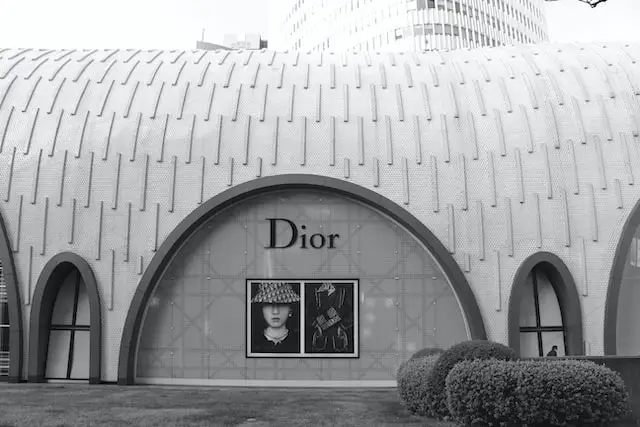
The brand now uses recycled materials in its products. On a personal level, Dior commits to becoming more sustainable for our planet.
Its “Dream in green” initiative is based on three pillars;
- To protect and care for our natural resources
- To work for a positive climate change
- To make an inclusive work environment for all
However, Dior still has a long way to go to become completely sustainable and green.
Last Words
With plenty of high-end and bespoke clothing options, Dior is definitely beyond the definition of fast fashion. The brand focuses more on serving the old-school fashion buffs that want magnificent and timeless clothing.
So, if you are more of a quality person than quantity, Dior is a perfect match for you.
